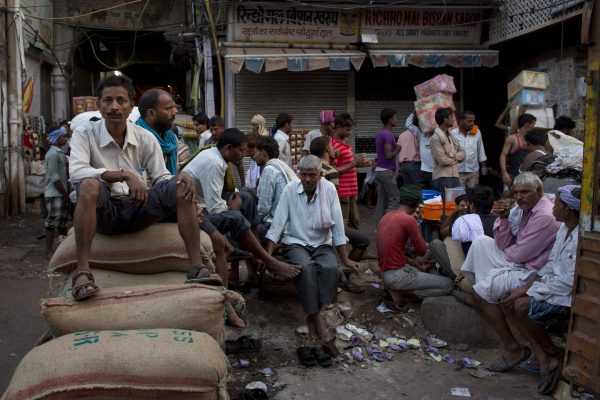But over the last three decades there has been a sense that it has failed to fulfil this. Whether it be in contributing to global economic growth, reducing extreme poverty and child mortality or improving the quality of education and job prospects for its huge population of young people, India’s achievements seem to continually fall short of expectations.
Thankfully for India, its democracy and constitution has withstood the test of time (except for occasional abuses such as during the Emergency in the 1975–77). Institutions in India — be it the judiciary, the central bank or the Election Commission — have generally done a very good job.
Still, although most of these institutions have performed well, their impact on the ground has rarely been felt. The Indian judiciary system, for example, has often failed to make decisions in a timely manner; while also failing in terms of social justice due to issues of accessibility, affordability and awareness.
The key problem for India is that the country and its politicians simply do not have any single-minded focus. And therefore, when it comes to actual democratic practices, India often moves between the standards of the world’s developed nations and those of former third world regimes.
This was evident in the 2014 general election. After 30 long years, Indian voters gave a single party, the Bharatiya Janata Party (BJP), the mandate of a simple majority. The Indian National Congress, India’s dominant political party since independence, has only itself to blame for its poor performance in the 2014 general elections and in the various state elections in the years leading up to the 2014 general election. The Congress has relied too heavily on the popular appeal of the descendants of India’s first prime minister, Jawaharlal Nehru, and has paid a price for putting a family above the party and the nation.
The poor performance of the Congress party is likely to continue for some time in spite of Prime Minister Narenda Modi’s BJP-led government missing the opportunity to pursue a development agenda since coming to power. The BJP still remains the strongest political party, not due to its work and performance in the government but due to the increasing political fragmentation in the country. The declining vote share of the national parties in the 2014 election, by nearly 3 per cent from 2009, proves that point.
The BJP has not been alone in missing an opportunity to capitalise on a sweeping political victory. Another political upstart, the Aam Aadmi Party (AAP), has had a phenomenal rise in the last three years, culminating in its massive win in elections in Delhi in 2015. But the party also failed soon after coming to power. In this case, the AAP proved itself to be too strongly beholden to the whims of its leader.
The stories of the BJP and the AAP show that the people of India want corruption-free governments that focus on economic and social development and justice. But, unfortunately, none of the current political parties have been able to offer this. Soon after winning, they have either lost their focus on reform or chosen to pursue narrower, often divisive political objectives. Social and economic development and justice have consistently taken a backseat.
India has been a noisy democracy historically, and the noise has only magnified in recent years. There are currently two distinct signals coming out of this noise. First, there has been a huge surge in intolerance with religion-backed nationalism. Second, India has recently laid claim to having the highest economic growth rate of any of the major economies. There is no scope for debate on the first trend, it is evident everywhere and must be addressed. What needs to be looked at more closely is whether the second trend, even if factually correct, is simply natural and inevitable in the current world rather than a sign of India reaching its potential. Should the nation be excited about the prospect of repeating the performance witnessed during 2004–07 — when India grew at near double-digit rates neck-and-neck with China?
Ruling politicians will always present a rosier picture than is justified. The Indian media amplifies, rather than scrutinises, its politicians’ claims. For example, the media has recently been gloating over FDI data showing that, with US$31 billion of inbound investment, India was the largest FDI destination in the first half of 2015. But, in contrast, Africa received US$87 billion in FDI in 2014 even though the continent has a population smaller than India.
The point is that FDI inflows occur where there is market opportunity. As that is the case, the massive rise in FDI inflows into China over the previous decades has likely led to over-investment, and there is now little competition for India as a destination for inbound FDI. China’s outward FDI has grown significantly lately and is now much higher than its inflow. Sooner or later, India will have the highest rate of growth in internet penetration too, but that should again not be cause for celebration.
There is no denying that there is currently a huge opportunity for India to catch up with China and the rest of the world. But the way the present government is wasting this opportunity by pursuing harmful policies, such as promoting internal intolerance and nationalism, does not forebode well for India’s nearly 1.3 billion people.
The Indian government and its hyperbolic media would do well to remain focused on a development agenda. Otherwise, the current period may prove to be another episode of premature irrational exuberance.
Professor Ranjit Goswami is the vice chancellor of RK University, Rajkot, India

